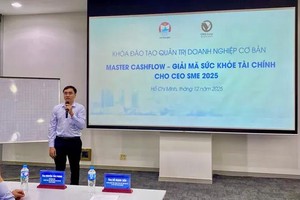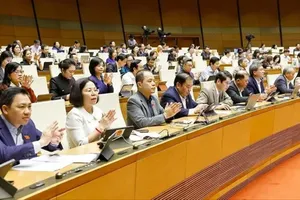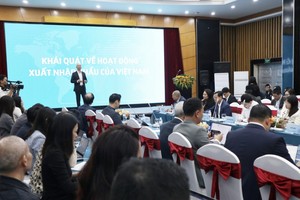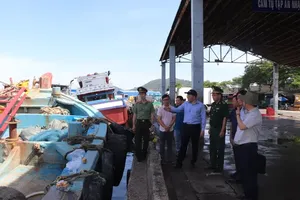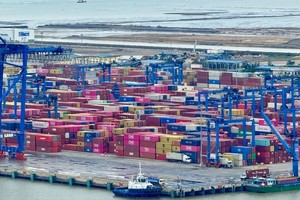The National Economics University held a policy dialogue seminar themed “The United States’ Retaliatory Tariff Policies: Impacts and Strategic Adjustments for Vietnam,” on May 8 in Hanoi.
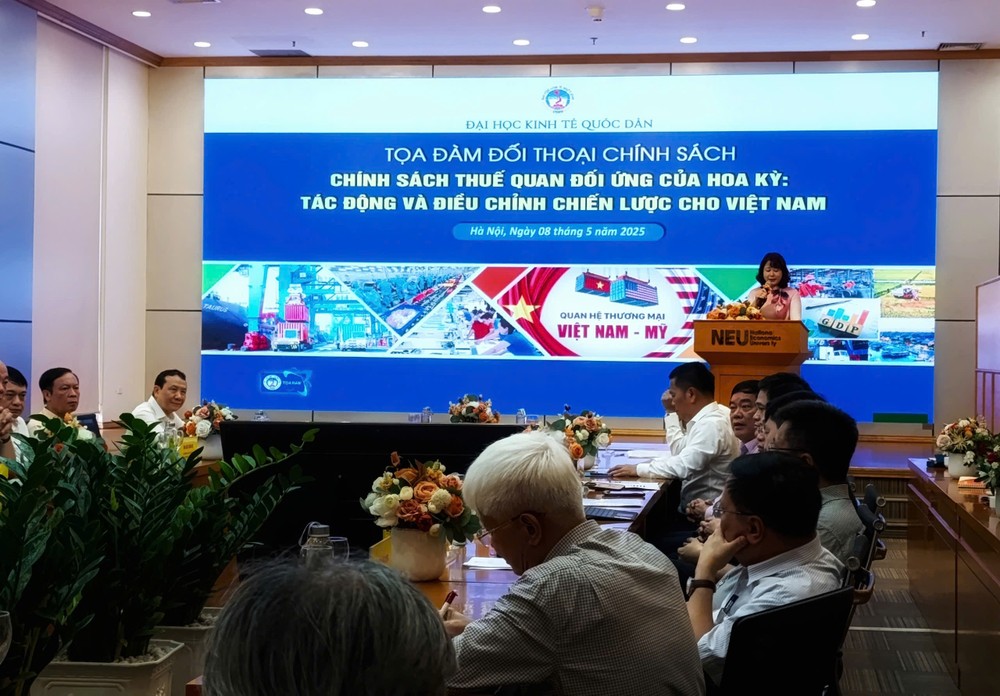
Speaking at the seminar, Prof. Dr. Nguyen Thanh Hieu, Vice President of the National Economics University, emphasized that exports from Vietnam to the United States currently account for 30 percent of the country's total export turnover, while the trade surplus with the US represents over 20 percent of Vietnam’s GDP.
Structurally, about 70 percent of exports to the US consist of key manufactured goods such as electrical equipment, electronics, components, mobile phones, footwear, textiles, and wood products—sectors largely driven by foreign direct investment (FDI), which has been a key growth engine in recent years.
Given this context, Vietnam must take this opportunity to formulate responsive strategies to navigate the impact of the US's new tariff regime. At the same time, it is a critical moment to restructure the economy toward greater self-reliance and sustainable development, while strengthening resilience against global uncertainties.
Associate Prof. Dr. Ta Van Loi, Dean of the College of Business at the National Economics University, recommended that Vietnam review its high-surplus export categories to the US and initiate negotiations aimed at alleviating tariff pressure on these goods.
Meanwhile, Associate Prof. Dr. Phan Huu Nghi, Director of the Institute of Banking and Finance at the National Economics University, emphasized that in order to mitigate the adverse effects of retaliatory tariffs, Vietnam’s approach should focus on minimizing disruptions to export-oriented businesses, maintaining domestic market stability and supply chains, preserving investor confidence and international partnerships, and turning crisis into a catalyst for reform and competitiveness enhancement.
Experts at the seminar also advised that Vietnam proactively negotiate tariff matters with the US to avoid unintended “post-negotiation” complications with other major trading partners such as China, the EU, and Japan.
In the long term, Vietnam needs to diversify export markets, strengthen regional and global cooperation, and reduce reliance on any single market. A comprehensive review of the tax revenue impacts, technology transfer implications, and environmental consequences of multinational corporations operating in Vietnam is essential to attract high-quality FDI.
Moreover, sustainable local economic development must be fostered through investments in infrastructure, local workforce training, natural resource restoration, and community engagement—laying the groundwork for an economy capable of withstanding external shocks.

